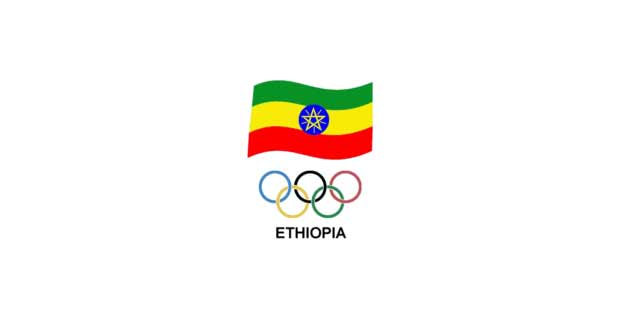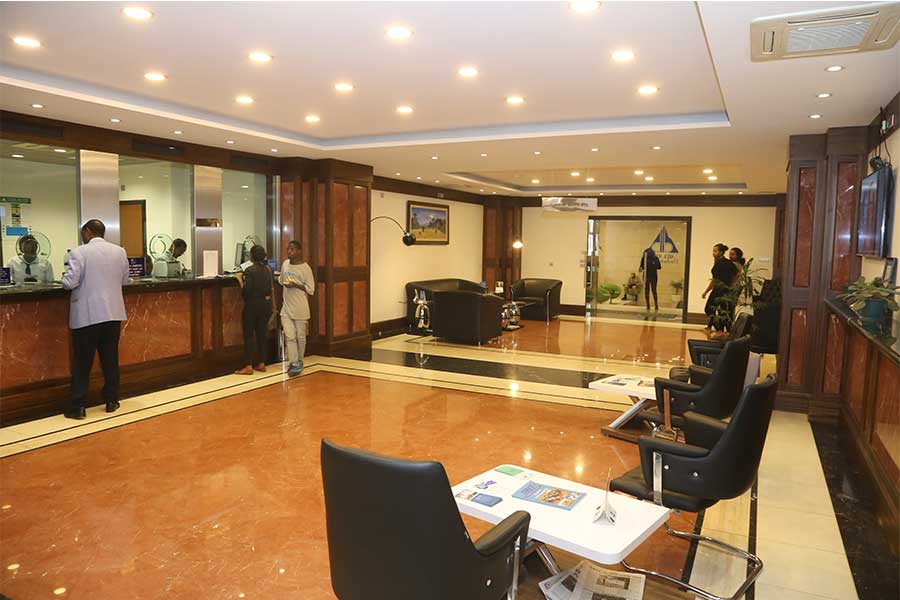
Jennet Lemma, who is among the 50 African innovators highlighted in the September online edition of UNDP Regional Bureau for Africa's magazine, was born and raised in the capital. The second eldest of five siblings, Jennet grew up in a hardworking family of businesspeople and related that she began working and earning her keep from a young age.
An entrepreneur who is engaged in the local textile manufacturing industry, Jennet graduated from high school at Lycée Guebre-Mariam and went on to attend university in the United States. She enrolled at Georgia State University in Atlanta, Georgia and matriculated with a bachelor's of business administration in accounting.
Before returning to Addis, she spent 12 years in the United States and gained valuable experience as an employee of a financial institution there. Ultimately, she decided to come back to Ethiopia, stating that she felt out of place in the United States and wanted to use her knowledge and experience to make an impact here in her home country.
“It's my dream and will always be my dream to find happiness in positively changing the lives of people both socially and financially," she said. "While I was working in the United States, what killed me every day was finding myself in a place where I didn’t belong."
In 2016, Jennet founded Gaber Garment, a textile company with a focus on empowering women. With the “Sewed with Passion for You” motto, Gaber Garment employs about 102 workers -- 77 of whom are permanent and 25 temporary. Almost all employees are women.
Gaber Garment, which is located in Kebena near Sandford International School, has been engaged in the production of a variety of textile products, including casual clothing, uniforms and recyclable shopping bags, when the global Novel Coronavirus (COVID-19) pandemic hit.
“It has always been my interest to be engaged in something that has a social impact,” says Jennet, who adds that in the first months of COVID-19, she had the idea of manufacturing personal protective equipment (PPE) in the form of face masks.
She discussed the idea with her colleagues before jumping into the production of PPE.
After the discussion, the first thing she and her colleagues did was carry out market research and make plans on reaching out to the Ministry of Health for support in receiving a license to produce face masks and PPE to fight COVID-19, according to Jennet.
After assessing these things, her company wrote a letter to the Ministry of Health, inviting them to come and visit her workshop and, afterwards, to permit them to manufacture PPE.
Gaber Garment was able to secure a production license after fulfilling standards set by the Ethiopian Food & Drugs Authority for the certification process for the production and sale of cloth face masks.
The company now produces 5,000 to 10,000 uniquely embroidered face masks a day. Though the price for the masks varies depending on the design, the average price for one mask is 25 Br. Most of their customers are banks, insurance companies and private companies.
“We participate in charity through different associations and organisations by donating face masks to the vulnerable members of the community who can’t afford to buy them,” Jennet said.
COVID-19 is something Jennet takes very seriously, stating that she takes great care to follow all instructions put forward by the Ministry of Health.
“Of course I'm afraid of COVID-19," she said. "It's an easily transmissible virus that can take a life in just a matter of days."
Gaber Garment is among the 12 small and mid-sized enterprises (SMEs) in Ethiopia with which the Mastercard Foundation has partnered. The Foundation has pledged to provide 3.2 million dollars in financial support to help the enterprises hold on to their employees. The Foundation also aims to aid these businesses in the repurposing of factories and in renting unused equipment and basic textile machines to be used in the manufacturing of PPE.
Mastercard Foundation supports Gaber Garment as part of its COVID-19 Recovery & Resilience Programme that assists institutions and communities in Africa to withstand and respond to the short-term impacts of the pandemic while strengthening their resilience in the long run, according to Alemayehu Konde Koria, country head for Mastercard Foundation Ethiopia.
"We assisted her to repurpose the production of her factory," Alemayehu said.
The support project aims to help the businesses cope with the situation, retain employees, and sustain female-owned enterprises during the pandemic.
Kelemoa Tekele, a 24-year-old mother of two who has been working in Gaber Garment for the past four years, is one of the employees who felt insecure about her job after the onset of the virus.
Kelemoa joined the company after she saw a vacancy posted on a pole while she was walking around her village. The posting stated that the company needed a garment operator, and she found it fitting for her since she went to a technical college to study how to make garments. After going through the recruitment process, she was given a 2,500 Br salary as an operator. But after four years she is working as a quality supervisor earning 3,000 Br.
Kelemoa wakes up early in the morning, makes breakfast for her family, and washes her nine-month-old daughter's clothing.
"I prepare lunch boxes for my husband and myself before I leave my home at 6:30am. The service picks her up at 6:45am to reach the workplace, which operates from 8:00am to 4:30pm.
"Worrying about losing my job was my biggest headache," she said, adding that they are still working at the plant by employing the necessary care such as wearing face masks and using sanitiser.
Beyond retaining their employees and remaining in production, Mastercard Foundation's support tries to enable these businesses to sell their products online via e-commerce platforms. For this, the Foundation has partnered with Kifiya Financial Technologies.
Kifiya partners with Mastercard to create market access for small enterprises as well as providing training. Now Kifiya is working with them to create an e-commerce market for these businesses, which are now facing challenges to sell their products.
"We're promoting them on social media by creating a market chain," said Munir Nuri, CEO of Kifiya.
One programme manager and two assistants are provided to these enterprises, and the former is paid by the Foundation. The programme manager will manage the activities of the businesses, while the two assistants work on finding a market for the products by the enterprises.
“We are lucky to be selected," Jennet said.
Abraham Destaw, a lecturer on textile production at Bahir Dar University's Ethiopian Institute of Textile & Fashion Technology, appreciates the moves to support small businesses that are affected by the pandemic.
"But the small enterprises should also work on their previous market at the same time while they are producing face masks," he said. "The demand for the masks may not be sustainable, and focusing on one product will not be helpful for the enterprises."
Her project granted Jennet recognition from the UNDP Regional Bureau for Africa, where she was prominently featured in a special edition of their online magazine. Africa Innovates chose to feature young African innovators who are committed to finding homegrown solutions to the pandemic despite facing limited access to resources and other significant social challenges.
The magazine spotlighted young Africans who are taking the initiative to develop diverse homegrown solutions for their respective communities and nations in fighting the COVID-19 pandemic.
“It's so surprising and unexpected to find myself on such a big stage,” said Jennet. “It's a big success for me to see my name on the list along with the young influential Africans who are striving to help their community by innovating."
Jennet suspects the reason for her selection by the UNDP Regional Bureau was due, in part, to a fundraising video published by the BBC.
“The fundraiser was organised by myself and two of my colleagues,” said Jennet.
It allowed them to cover the cost of raw materials they used to produce and donate 20,000 reusable and washable masks to 10 nonprofit organizations supporting the elderly.
"We also donated PPE to Eka Kotebe and St. Peter hospitals,” she said.
PUBLISHED ON
Oct 17,2020 [ VOL
21 , NO
1068]

Fortune News | Apr 25,2020

Radar | Jun 14,2020

Radar | Dec 25,2018

Fortune News | Sep 08,2019

Featured | Jul 27,2019

Dec 22 , 2024 . By TIZITA SHEWAFERAW
Charged with transforming colossal state-owned enterprises into modern and competitiv...

Aug 18 , 2024 . By AKSAH ITALO
Although predictable Yonas Zerihun's job in the ride-hailing service is not immune to...

Jul 28 , 2024 . By TIZITA SHEWAFERAW
Unhabitual, perhaps too many, Samuel Gebreyohannes, 38, used to occasionally enjoy a couple of beers at breakfast. However, he recently swit...

Jul 13 , 2024 . By AKSAH ITALO
Investors who rely on tractors, trucks, and field vehicles for commuting, transporting commodities, and f...

Oct 11 , 2025
Ladislas Farago, a roving Associated Press (AP) correspondent, arrived in Ethiopia in...

Oct 4 , 2025
Eyob Tekalegn (PhD) had been in the Governor's chair for only weeks when, on Septembe...

Sep 27 , 2025
Four years into an experiment with “shock therapy” in education, the national moo...

Sep 20 , 2025
Getachew Reda's return to the national stage was always going to stir attention. Once...